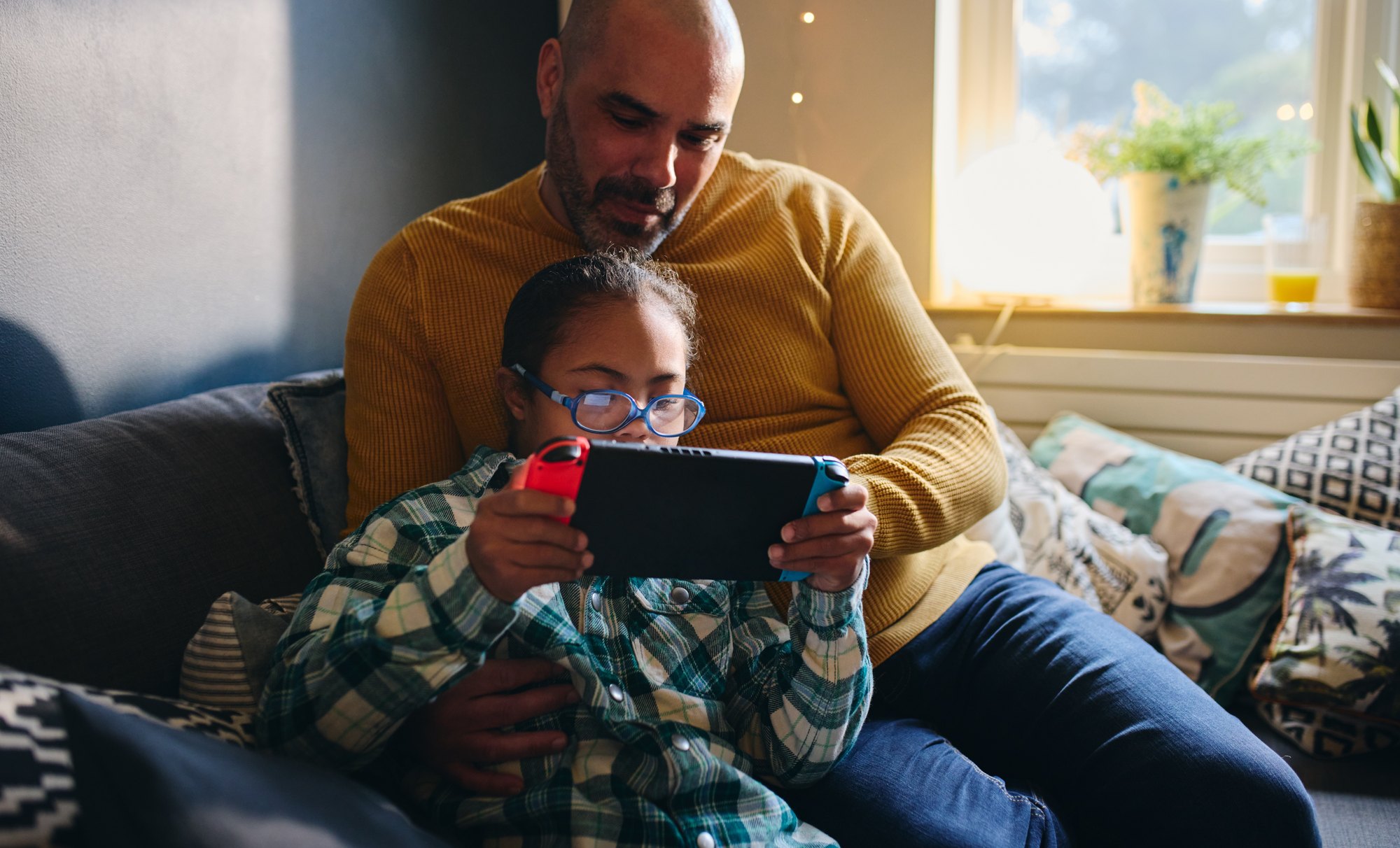
Does Learning by Gaming Really Deliver?
There is a lot of discussion about learning by gaming but how do you get more from video games than entertainment in your family? The video games here support a wide range of learning styles and educational outcomes.
Almost anything a child does can have educational benefits: walking in the park, swimming in the sea, watching television or playing tag with friends. However, some activities are specifically ambitious for the breadth and depth of learning that can take place.
We are used to recognising the educational value of reading books, mealtime conversations, risky play and drawing or painting. Less obvious are the ways that video games offer a chance for education in the lives of our children. As highlighted by Internet Matters, “online video games can be a way to help support your child’s learning and teach them key life skills”. Understanding this enables us to embrace digital play and be ambitious for the sorts of challenges and learning our children take on.
More Than Hand-Eye Coordination
What we see when a child plays a video game is the physical actions required to operate the technology. It’s no surprise then that hand-eye coordination and reaction times are one of the most common benefits cited by parents. They also often mention the teamwork they hear their children engaging in to do well in many of the online games where they take on other teams.
Coordination and teamwork are certainly something that children develop while playing. However, like physical play, there are also all sorts of other learnings and developments happening. These are less obvious, but more important to notice as they open the door to supporting a child to discover more games that develop these skills further.
This learning by gaming spans many areas. It often includes some surprisingly complex reading and comprehension in games with narrative elements like Bugsnax. Then there is the forward planning and multiple systems you need to deal with in games like Dorfromantik. Games like the island-hopping Monsters Expedition challenge players to stretch their spatial reasoning and logic. Other games offer more traditional learning, like the organisation and identification challenge of Wilmot’s Warehouse or embodied gravity physics of Ibb and Obb.

Upping The Educational Stakes
Identifying what a child is learning by gaming is not an exact science. Like physical play, digital play is malleable and fluid. Unlike the systematic learning in school lessons, at play things develop in a stop-start haphazard way. This in itself can be a good fit for how some children naturally learn and offers a chance for parents and carers to support and encourage them to be ambitious for their gaming time.
The best way to understand what your child is getting from the games they play is to spend time with them while they do it. This might be to ask if they’d like you to play with them. Or, just as powerful, is to sit with them while they play and ask questions. You may think they will be reluctant to have you there, but children usually love it when their adult takes an interest in their favourite hobby.
As you develop an understanding of what they are actually up to in the games they play, you can ground this learning by discussing their progress afterwards. Helping them reflect on how they are developing, and what might help them improve or go further in their games is an edifying experience for both of you. Perhaps there’s a particular aspect they could practice. Maybe there is some related reading that would support their in-game progress. Or it could be that they just need to be more systematic in their approach.
Discovering Stretching Games Together
These conversations may lead to questions about what game they should play next. Of course, your child will have their own idea about this - often what their friends are playing. But there is an opportunity to use the amazing (and often educational) games we have on GameSmart to find their next big challenge.
You can browse the games together, keeping an eye out for something that may appeal. There’s a useful PEGI age rating filter so you can find the most appropriate games for their age group. Or you can find a game they already enjoy and then use the list of similar games at the bottom of the page to find a new one. This offers a unique way to find games with your child, rather than them pestering you for the next popular fad.
For example, if they have loved The Legend of Zelda: Tears of the Kingdom, you can build on the exploration, engineering and comprehension in that game with the suggested next games. Tunic takes the adventure in a more mysterious direction with a language to decipher and a world to make sense of. Or perhaps the Star Wars Jedi Survivor will be a better fit, taking the challenge in a more exuberant route that requires resilience and confidence.
Each game has advice on how young a child can be and enjoy the game in the Skill age level box. This also offers some details on the sorts of skills the game works with and develops. The Positive Gameplay box at the top of each game page also offers some pointers for the sorts of areas the game addresses.

Play Together, Learn Together
However this conversation goes, creating space that values your child’s love of video games can be transformative. Along with Internet Matters tips on how to keep gaming healthy, it enables them to put into words what they are doing and learning. Inevitably, this joins up their digital play with other parts of family and school life.
Rather than resisting and policing children’s video games, we find a way to be ambitious for their hobby. This has positive benefits for their education, but also a broader understanding of who they are and what they might do in the world as they grow.
Author: Andy Robertson, is a family gaming expert who appears in The Guardian, BBC and national broadcasts. He wrote the Taming Gaming book for families.
POWER UP YOUR PRESENTS
EE can help you get everything you need from consoles, to games, to connectivity.
Go to the EE Game Store